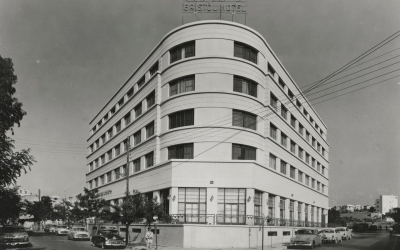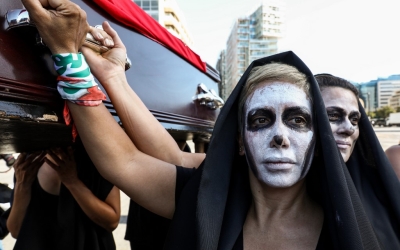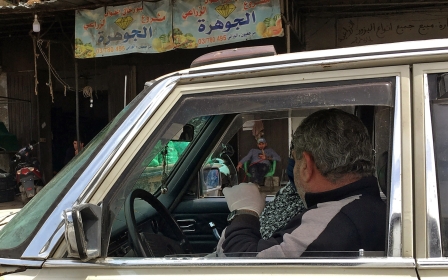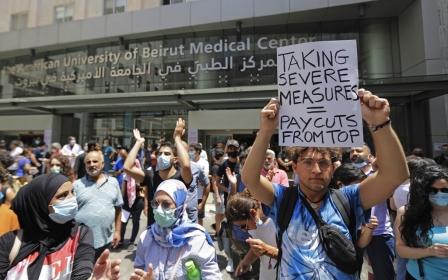French FM says reforms in crisis-hit Lebanon 'taking too long'
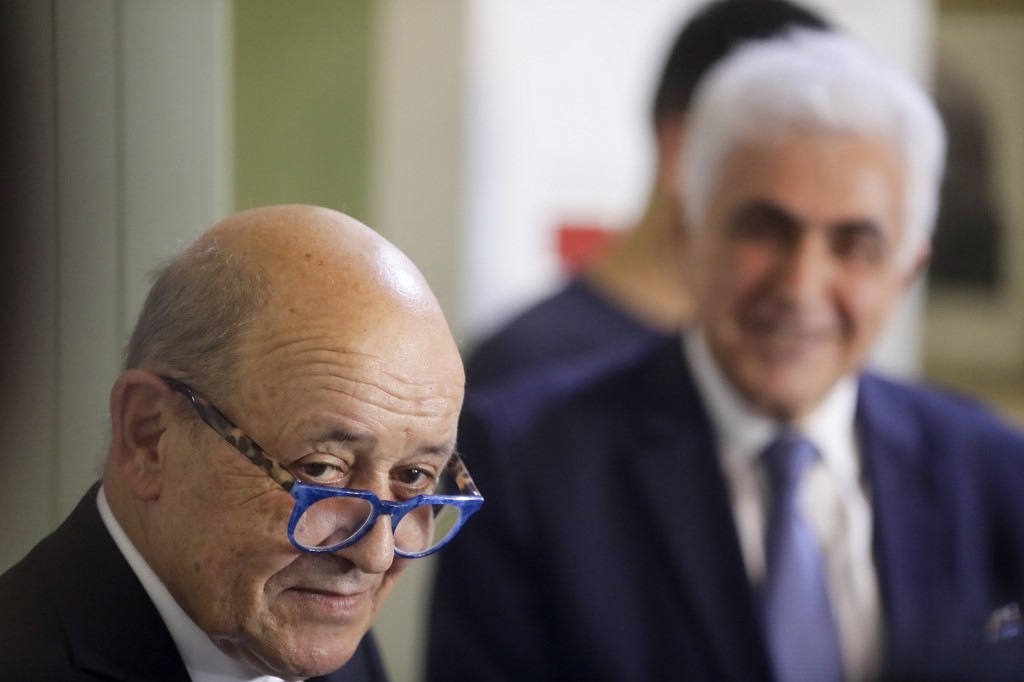
France's top diplomat has voiced disappointment at the pace of reforms in Lebanon and warned that any international assistance hinges on urgent action.
"'Help us to help you' is the message of my visit," French Foreign Minister Jean-Yves Le Drian said on Thursday, after meeting with Lebanese leaders in Beirut.
Lebanon is suffering its worst economic crisis since the 1975-1990 civil war, marked by a steep decline in the value of the currency and runaway inflation that have plunged almost half of the population into poverty.
After meeting his counterpart, Nassif Hitti, Le Drian described the Lebanese leadership as "passive", adding that "concrete actions have been expected for too long".
The free-falling economy has sparked mass protests since October against a political class accused of being incompetent and corrupt. Tens of thousands have lost their jobs or part of their income.
After the country defaulted on its debt in March, the government pledged reforms and began talks with the International Monetary Fund two months ago.
The negotiations have since hit a wall, with two top members of the government's own team resigning, allegedly in frustration at the administration's lack of commitment to reforms.
"There is no alternative to an IMF programme to allow Lebanon to exit the crisis," Le Drian warned.
Lebanon's government says it needs more than $20bn in external funding, which includes $11bn pledged by donors at a 2018 Paris conference that was never delivered because of a lack of reforms.
'Credible recovery measures'
Analysts say a deal with the IMF is key to unlocking any further aid.
"France is ready to fully mobilise at Lebanon's side and to mobilise all its partners, but, for that, serious and credible recovery measures have to be implemented," the French minister said.
He singled out as an example the loss-making electricity sector, where reforms have been dragging for years.
"I can say clearly that what has been done until now in this field is not encouraging," he said.
Le Drian met Prime Minister Hassan Diab, President Michel Aoun and Parliamentary Speaker Nabih Berri in the morning.
But his patience was clearly wearing thin as he dished out more criticism during an afternoon visit to Amel, a charity in southern Beirut that helps some of Lebanon's most vulnerable.
"I was reading in Lebanese newspapers that Lebanon was waiting for Le Drian. No, it's France that's waiting for Lebanon," he said.
"What is striking to us is how passive the authorities of this country are," Le Drian said during a conversation with the head of Amel about soaring poverty levels.
Le Drian's uncompromising tone echoed an appeal he made in France's Senate earlier this month that was widely reported in Lebanon: "Help us help you, dammit."
"I said 'dammit' the other day in the Senate so I wouldn't have to use a swear word. It was an affectionate word but it came with a dose of anger," he said.
Dozens of businesses are closing permanently every day, thousands of people are losing their jobs or suffering massive pay cuts and the suicides of citizens submerged by debt have shocked the nation.
Lebanon is burdened by sovereign debt equivalent to 170 percent of its GDP.
Most traffic lights have stopped working in Beirut, electricity is becoming scarce and a growing number of Lebanese are looking for ways to leave the country.
The slow motion collapse of a state that will celebrate its centenary in just over a month has sparked warnings that sectarian violence could return.
Le Drian said the rest of Lebanon's international partners were on the same page, as was the protest movement that emerged last year to demand reforms and demand an end to corruption.
Also on Thursday, James Cleverly, the United Kingdom's minister for the Middle East, made his first "virtual visit" to Lebanon, the British embassy said.
"Reform, economy and security" are top of the agenda it said in a statement on Wednesday.
Middle East Eye propose une couverture et une analyse indépendantes et incomparables du Moyen-Orient, de l’Afrique du Nord et d’autres régions du monde. Pour en savoir plus sur la reprise de ce contenu et les frais qui s’appliquent, veuillez remplir ce formulaire [en anglais]. Pour en savoir plus sur MEE, cliquez ici [en anglais].


